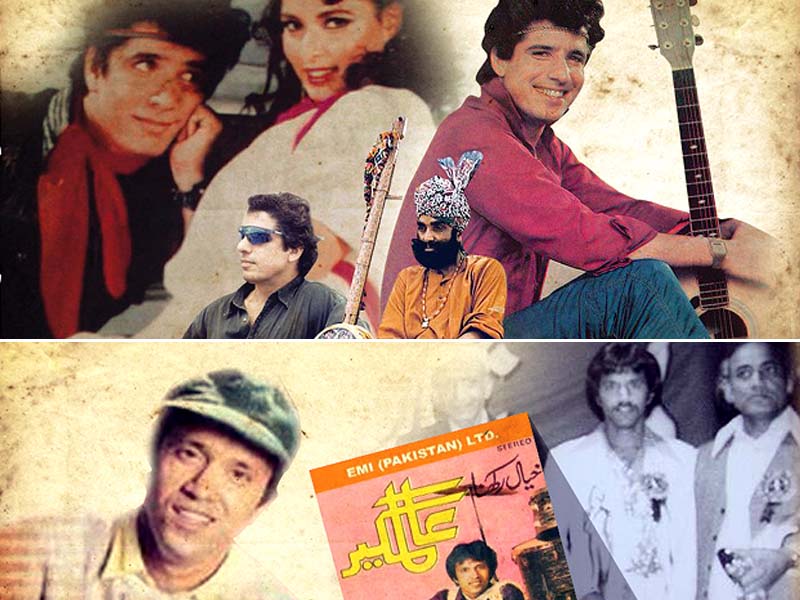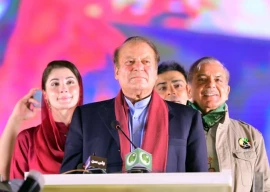
From the Nazia and Zohaib’s disco tunes and moves to Junaid Jamshed’s mesmerizing vocals in the patriotic ‘Dil Dil Pakistan’ and ‘Yahi Zameen’ and in the existential ‘Musafir’ and ‘Tum Dur Thae’ to Junoon’s introduction of ‘fusion’ music in the form of ‘Nee Heeray’, ‘Sayoonee’ and ‘Jazba-Junoon’. They were pretty much the ‘Big 3’ of the Pakistani pop music industry and the foundation of band culture in Pakistan. However, our rich pop music history goes beyond these legendary acts and here we attempt to explore that.
Keh Dena (1982)

Initially traveling between East and West Pakistan, Alamgir eventually moved to Pakistan in the early 70s. Those who belonged to that generation recall him as a ‘youngster’ clad in jeans and a Tee-shirt, who would often treat people to his songs, sitting on a bench in Hill Park. After struggling for some time, Alamgir finally received a break through Albela Rahi and also went on to record the very popular Bengali folk song Aamay Bhashaili Re. Even though he was a known face by then, he really began making waves among the western music listening youth with his song Keh Dena. It was not only an original composition by Alamgir but the singer also played the guitar on its initial version, though the version that is more readily available online features the neat guitar playing of Aamir Zaki. The brilliant pop-rock number was a ray of hope in a predominantly film, milli naghmay and ghazal dominated music industry. Since its release, the song has been covered by multiple artists a number of times but the version that received immense popularity was his collaboration with Chinese singer Christie Yung.
“Kristie Yung surprised me,” says Alamgir. “I have sung in so many languages myself and I remember when I used to sing in other languages, I used to take the recording to the embassy of that country and ask for their feedback,” the singing legend spoke about his collaboration.
Teray Ishq Mae (1986)

The line “Allah Allah kar bhaiya, Allah hee sae dar bhaiya” resonates in every Pakistanis mind and by the very power of spoken language, has been conveyed to generations. Released under the state-controlled PTV and at a time when the Soviet invasion of Afghanistan was coming to an end, the song in many ways introduced the concept of fusing eastern and western music. Although folk artists were traditionally given decent air time on radio Pakistan and PTV, with this song, we saw one collaborating with and not imitating a mainstream pop singer. Needless to say, ‘Teray Ishq Mae’ by Mohammad Ali Shyhaki and Allan Faqir was the first successful experiment in fusion music but before we celebrate its glory, here’s an interesting fact: Faqir was never meant to be a part of the song.
Shyhaki recalls how he and Saira Kazmi (producer of the video) were looking for a girl who could sing the part and record a duet with Shyhaki. “The ones who looked good on camera were ordinary singers and the good singers were not as presentable, and while we were skimming through the names, Faqir passed by our room in the PTV Karachi office and we called him in,” recalls Shyhaki. “As soon as Faqir walked into the room, we (Saira and I) looked at each other in astonishment and that’s when Saira Kazmi said ‘Why not give it a try’ and the rest, as they say, is history.”
Well-known lyricist Shabi Farooqi came on board to write the Urdu translation of the song and Javed Allahditta of PTV produced the song. “Since the metaphors were derived from Thar Desert, it became very difficult to translate it as it is, so Farooqi sb kept its soul intact and treated it like a Hamd.”
“The catch for me in the song was ‘Humma Humma’ which faqir told me was the voice shepherds used to take out while pulling their animals out of a puddle. ‘Siyani, Piyari’ were all the names of the animals in the shepherd’s herd”.
Four days after the release of the song, the PTV office was flooded with telegrams filled with admiration for the song. “That is when we realised we had made something really impactful; we had made something that lead to the genesis of Coke Studio”.
‘Lost tales’ is a series of stories about iconic Pakistani songs, which will be published on Thursdays.
Published in The Express Tribune, May 7th, 2015.
Like Life & Style on Facebook, follow @ETLifeandStyle on Twitter for the latest in fashion, gossip and entertainment.






















1714024018-0/ModiLara-(1)1714024018-0-270x192.webp)









COMMENTS
Comments are moderated and generally will be posted if they are on-topic and not abusive.
For more information, please see our Comments FAQ